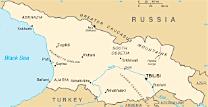Although the precise catalyst for the war between Russia and Georgia is unclear, the escalation was almost inevitable given the years of tension and the diplomatic stalemate over the status of the pro-Russian separatist regions of Abkhazia and South Ossetia as well as other fundamental issues such as Georgian aspirations to join NATO. The question was always whether Moscow would exploit its local military superiority to compel Georgia's formal dismemberment or would instead hold the threat of armed interventions in reserve in an attempt to influence Georgian foreign policy without incurring the damage to Russian-Western relations that might ensue from blatant military action against Tbilisi. The unexpected explosion of the South Ossetian conflict and the resulting full-scale Georgian attack on the breakaway province apparently led Russian policy makers to accept the risks of armed confrontation in the expectation that, given the poor general state of Russian-Western relations, Moscow would suffer minimal additional costs while achieving some enduring security benefits. At present, Western governments find themselves with too few usable sticks or carrots to have much impact on Russian policy toward Georgia. The Russian military intervention has achieved its initial objective of compelling Georgian troops to end their offensive to capture the provincial capital of Tskhinvali. Russian officials have rejected calls by Tbilisi and foreign governments to accept a ceasefire until the Georgian government withdraws its forces from all of South Ossetia and signs a legally binding agreement never to employ force in the region again.
Moscow’s Motives in its Georgian War

